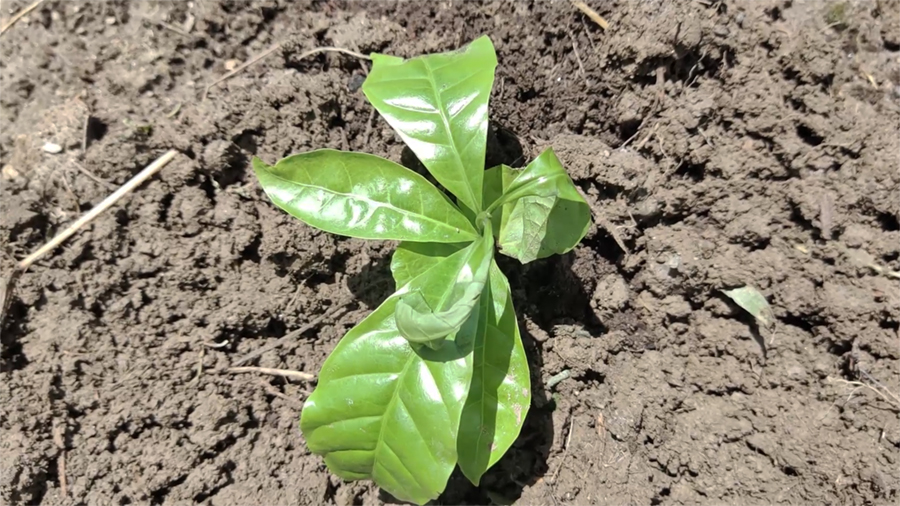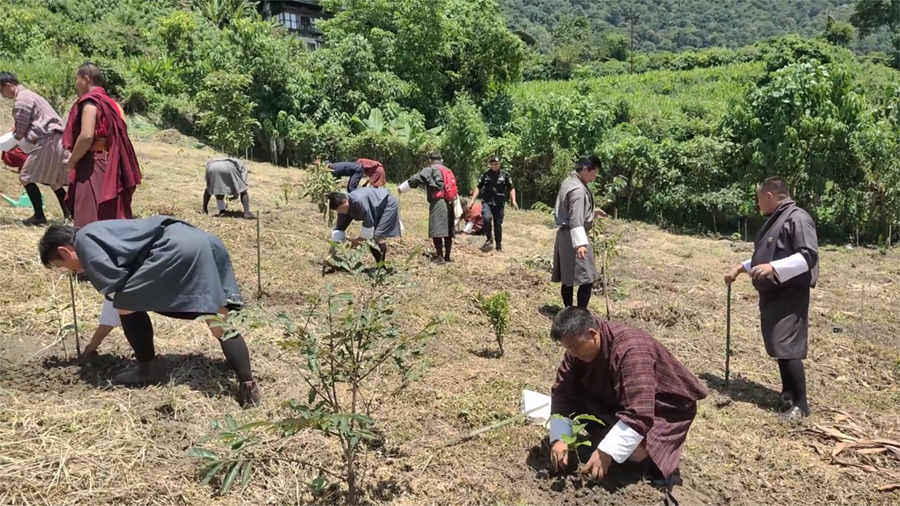
With the highest forest cover and protected areas, Zhemgang has seen coffee as a promising cash crop to be cultivated. This initiative is expected to not only create economic opportunities but also help revive fallow land and address human-wildlife conflicts. According to the district agriculture office, coffee can be an effective buffer crop in mitigating crop damage caused by wild animals.
 The mass coffee plantation started in Dakpel village in Zhemgang’s Nangkor Gewog on Friday.
The mass coffee plantation started in Dakpel village in Zhemgang’s Nangkor Gewog on Friday.
Around 180,000 saplings were distributed to more than 600 households of seven Gewogs.
According to the district agriculture officials, coffee has the potential to become a high-value crop that will benefit the rural economy, in addition to other agriculture farming.
Tashi Phuntsho, Deputy Chief District Agriculture Officer of Zhemgang said “Coffee can be grown in all the eight Gewogs of Zhemgang. However, we have two different varieties of coffee. One is Robusta, which can be grown from 600 metres above sea level, like in Zhemgang, and Arabica coffee, which can also be grown between 600 to 1000 metres above sea level in all the Gewogs. Most importantly, people should come forward, we cannot force them. We have provided an opportunity for all eight Gewogs to grow coffee this time. Saplings are supplied through cost-sharing, with 70 per cent funded by the government and 30 per cent by the farmers themselves.”
He added that they will be exploring the market for the coffee.
“Every agriculture project that we plan requires easy access to the market. That is why in November and December of this year, we are planning to hold a multi-stakeholder meeting. This meeting will be attended by officials from the district administration, leaders of coffee cultivation group from eight Gewogs and agriculture marketing officials. The purpose of this meeting is to discuss rates with representatives from Bhutan Mountain café and the CSI market. During the day-long meeting, all aspects related to marketing will be addressed and discussed.”
The agriculture officials said that the coffee trees will start bearing fruits, three years from now.
The district is expected to earn about Nu 90 M in a year from the sale of coffee, if everything goes as planned.
Pema Samdrup, Zhemgang
Edited by Tshering Zam









